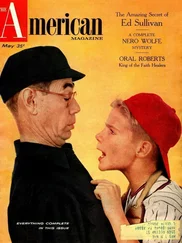Helen Grant - The Vanishing of Katharina Linden
Здесь есть возможность читать онлайн «Helen Grant - The Vanishing of Katharina Linden» весь текст электронной книги совершенно бесплатно (целиком полную версию без сокращений). В некоторых случаях можно слушать аудио, скачать через торрент в формате fb2 и присутствует краткое содержание. Жанр: Триллер, на английском языке. Описание произведения, (предисловие) а так же отзывы посетителей доступны на портале библиотеки ЛибКат.
- Название:The Vanishing of Katharina Linden
- Автор:
- Жанр:
- Год:неизвестен
- ISBN:нет данных
- Рейтинг книги:5 / 5. Голосов: 1
-
Избранное:Добавить в избранное
- Отзывы:
-
Ваша оценка:
- 100
- 1
- 2
- 3
- 4
- 5
The Vanishing of Katharina Linden: краткое содержание, описание и аннотация
Предлагаем к чтению аннотацию, описание, краткое содержание или предисловие (зависит от того, что написал сам автор книги «The Vanishing of Katharina Linden»). Если вы не нашли необходимую информацию о книге — напишите в комментариях, мы постараемся отыскать её.
Pia is determined to find out what happened to Katharina.
But then the next girl disappears…
The Vanishing of Katharina Linden — читать онлайн бесплатно полную книгу (весь текст) целиком
Ниже представлен текст книги, разбитый по страницам. Система сохранения места последней прочитанной страницы, позволяет с удобством читать онлайн бесплатно книгу «The Vanishing of Katharina Linden», без необходимости каждый раз заново искать на чём Вы остановились. Поставьте закладку, и сможете в любой момент перейти на страницу, на которой закончили чтение.
Интервал:
Закладка:
Were it not for the uncertain notion that he and Herr Schiller were brothers, I would never have taken them for blood relatives. Although Herr Schiller was tall, Herr Düster was of medium height and had a skinny, paltry look about him, as though he had never eaten well in his life. In fact Pluto looked glossier and better fed than he did.
Only in his eyes could one discern any point of similarity with the urbane Herr Schiller-they were the same bright cornflower blue. But they were overhung with iron-gray brows that gave Herr Düster a surly expression, as though he were permanently glowering at someone, which in actual fact he very often was.
The popular legend among the local children (and probably their parents, too, when they were schoolchildren) was that Herr Düster had been a member of the National Socialist German Workers’ Party, who’d somehow managed to escape justice. He had been having an affair with the Bürgermeister’s fiercely ugly daughter, and she had somehow got him off the hook; or he had been certified temporarily insane by a doctor he was blackmailing; or he had spent three years after the war hiding out in the ruins of the old castle on the Quecken hill, creeping out at night to steal chickens to eat raw: all these were cited as genuine reasons why Herr Düster had never been brought to justice.
As for the dislike between himself and Herr Schiller, for a long time I just took it for granted. It was after seeing them pass each other in the Werther Strasse one afternoon, Herr Schiller inclining his head with frosty civility and Herr Düster slouching past as though he hadn’t noticed, that I asked my mother about their relationship.
“Are Herr Schiller and Herr Düster brothers, or aren’t they?” I wanted to know.
My mother looked up with mild interest.
“Yes, they are brothers.” She thought about it. “Not very close brothers, though. Your Oma Kristel is always saying that Herr Düster must be a terrible trial to poor Heinrich”-that was Herr Schiller’s Christian name.
“So why have they got different last names, then?” I asked, still not having got to the bottom of the matter.
“Funny,” said my mother, “I once asked Oma Kristel that.”
“What did she say?” I asked.
“She sniffed, and said some people had to change their names after the war, and that it didn’t stop those who were around at the time remembering who was who and what was what. I suppose she meant people who belonged to the Nazi party,” she mused. “The older people in the town must remember who some of them were.”
“So was Herr Düster one?” I persisted. “Is that why Herr Schiller doesn’t like him?”
“I don’t think so,” said my mother. “I had the impression it was something more personal than that, a family feud or something.” She eyed me suspiciously. “We don’t know any of this for a fact,” she said. “I don’t want you going around telling people Herr Düster is a war criminal or something, Pia. Understand?”
“Yes,” I said impatiently. “But if it was a family feud, what was it about?”
My mother put down her work and looked at me askance. “What is this, twenty questions or something?” She shook her head. “It’s no use asking me. Oma Kristel’s the expert on Bad Münstereifel gossip.”
I never did ask Oma Kristel about it. I couldn’t imagine asking my grandmother prurient questions about “poor Heinrich’s” past. Besides, Oma Kristel did not like to talk about the war and the postwar period; it was too painful a topic. Evidently other adults felt the same, because the page on the town’s history in the annual tourist brochure mentioned such interesting events as the building of the B51 highway in 1841 but leaped neatly from the 1920s to the 1950s without one reference to the horrors in between.
Truthfully, it was hard for me to imagine anything as awful as the Second World War touching the town; looking at the half-timbered buildings and cobblestones you would think the twentieth century had bypassed it altogether. It was strange to think that so many of the old town houses had been bombed flat. It was a miracle really that the medieval walls, the old red Rathaus , and the church survived.
After the war there was a time of terrible hardship and the nuns of the local convent set up a sort of soup kitchen to feed schoolchildren who would otherwise have been too famished to apply themselves to learning. This was not a topic that was covered in my fourth-grade project about the history of the school. It was my mother who told me about it, rather to my father’s disgust-the British tendency to put “Germany” and “the war” in the same sentence had not escaped him, and he suspected her of making a sly dig at her adopted country. Photographs of the postwar period showed children of my age dressed in ill-assorted and tatty clothing: saggy sweaters made from wool unraveled from older items, and hand-me-downs too big for their recipients. Apart from anything else, it was all horribly dowdy. I could see why Oma Kristel spent the rest of her life in an eternal quest for Glamour.
Quite often she went to Herr Schiller’s house looking like some sort of movie star, even affecting a little fur collar that looked like a real animal, with jeweled eyes and a tail hanging down at one end. She wore heels so high that they were a positive endangerment to a woman of her age; she could so easily have broken an ankle. But Oma Kristel refused to believe in osteoporosis. She continued to mince about with her heels clacking on the cobblestones and the tail of the dead fox swinging from her shoulder, looking like Marlene Dietrich.
She first took me along to Herr Schiller’s dimly lit old house when I was too young to put up a fight about being dragged out to visit one of Oma’s ancient friends, and later on I was quite happy to go with her anyway. Herr Schiller’s house was fascinating, full of strange old items, such as a sepia funeral photograph from about 1900, showing someone lying in their coffin surrounded by flowers, and a miniature ship in a bottle, tacking eternally across a sea of frozen blue putty.
Herr Schiller himself was an absolute mine of weird and interesting information. I don’t remember how he first fell into the role of storyteller; perhaps Oma Kristel had marched off to the kitchen to take charge of coffee-making, and he had felt obliged to amuse me somehow. At any rate, it soon became a regular thing of ours, that I would demand that he tell me “a scary story” and he would bring out some nugget of local history or some gruesome snippet of Eifel legend.
The story of Unshockable Hans and the cats, told to Stefan and me after Katharina Linden’s disappearance, was his most lavishly embellished so far. He set out to thrill us, to take us with him into a world of darkness and spirits, a realm of ghosts, witches, and monsters, where danger lurks but a stout heart and a strong faith will always conquer, where Good wins and Evil can be vanquished with a flourish of a rosary. And for a while it worked and we were comforted. That is, until later, when the next child vanished.
Chapter Eleven

In some far-off, terminally optimistic part of my mind I had thought that the disappearance of Katharina Linden, which was naturally the talk of the town, would have superseded the sorry tale of Oma Kristel’s combustion. If this sounds callous, I can only say that at that time none of us as yet really believed in her disappearance. Bad Münstereifel was, after all, the town where Pluto’s attack on an overfed dachshund was front-page news.
I hoped in vain, as was evident from events on the first morning back at school after Karneval. It did not make anything better-if anything, it made things worse.
Читать дальшеИнтервал:
Закладка:
Похожие книги на «The Vanishing of Katharina Linden»
Представляем Вашему вниманию похожие книги на «The Vanishing of Katharina Linden» списком для выбора. Мы отобрали схожую по названию и смыслу литературу в надежде предоставить читателям больше вариантов отыскать новые, интересные, ещё непрочитанные произведения.
Обсуждение, отзывы о книге «The Vanishing of Katharina Linden» и просто собственные мнения читателей. Оставьте ваши комментарии, напишите, что Вы думаете о произведении, его смысле или главных героях. Укажите что конкретно понравилось, а что нет, и почему Вы так считаете.





![Майкл Муркок - Спящая волшебница / The Sleeping Sorceress [= Участь Белого Волка, Рыцарь Хаоса, The Vanishing Tower]](/books/327544/majkl-murkok-spyachaya-volshebnica-the-sleeping-sorc-thumb.webp)






